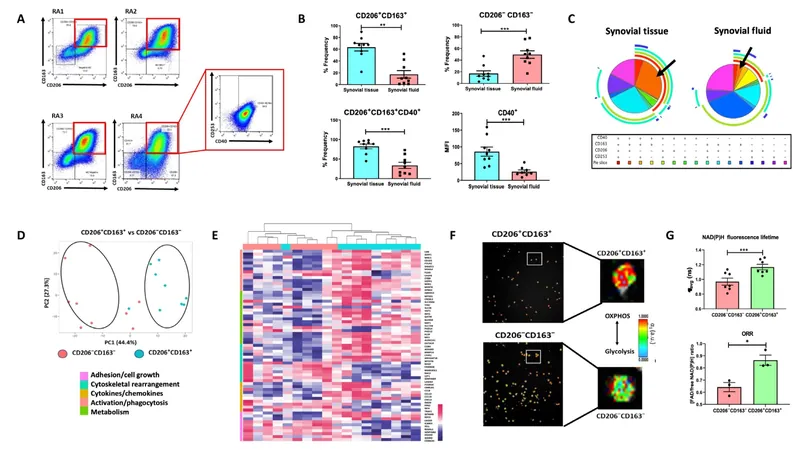
Breakthrough Study Paves the Way for Early Detection and Treatment of Rheumatoid Arthritis!
2024-09-26
Rheumatoid arthritis (RA) remains an incurable affliction impacting approximately 40,000 individuals in Ireland alone. With hefty annual costs of around $22,000 per patient, the total financial burden on the health system surges to an astonishing $608 million. Alarmingly, only 25% of patients experience remission, while many others receive inadequate responses to existing therapies, leaving countless individuals in distress and with untreated symptoms.
The current medical landscape lacks the ability to predict who may develop severe and damaging forms of the disease, leading to a trial-and-error approach to treatment. This often results in irreversible joint damage before patients finally receive the appropriate care they need.
However, new research from Trinity College Dublin, in collaboration with St Vincent’s University Hospital, could revolutionize how RA is diagnosed and treated. The study, published in the prestigious journal Science Advances, introduces groundbreaking insights into the inflammatory processes that could pave the way for novel treatment strategies or predictive biomarkers, marking a significant step towards personalized medicine in rheumatology.
Led by Professor Ursula Fearon and Dr. Megan Hanlon from Trinity’s Molecular Rheumatology Group, alongside Professor Douglas Veale from St Vincent's, the research team conducted a comprehensive examination of a particular type of immune cell known as macrophages. These cells are found within the synovium of RA patients, those at risk of developing the disease, and healthy individuals.
For the first time, the researchers identified a specific subtype of macrophages—characterized as CD40-expressing CD206+CD163+—that predominates in the inflamed synovium of RA patients. These cells were notably linked to both disease activity and the response to treatments, suggesting that monitoring these macrophages could become essential for assessing RA progression.
In healthy joints, macrophages serve a protective function, but in RA, they seem to shift to a pro-inflammatory role, unleashing proteins known as cytokines that escalate inflammation and activate destructive fibroblast cells, which ultimately leads to the degradation of cartilage and bone.
Intriguingly, the study highlights that the inflammatory behavior of these macrophages is maintained through specific signaling and metabolic pathways present in the joint. By targeting these pathways, researchers believe they can potentially reverse inflammation. Furthermore, their findings indicated that these harmful changes in macrophages may begin before the clinical onset of the disease, suggesting that earlier intervention could significantly improve patient outcomes.
This pioneering research not only sheds light on the complexities of rheumatoid arthritis but also encourages hope for earlier diagnosis and more effective, personalized treatment strategies that could transform the lives of countless individuals suffering from this debilitating condition.
Stay tuned for more updates as we continue to follow this exciting development in arthritis research!


 Brasil (PT)
Brasil (PT)
 Canada (EN)
Canada (EN)
 Chile (ES)
Chile (ES)
 España (ES)
España (ES)
 France (FR)
France (FR)
 Hong Kong (EN)
Hong Kong (EN)
 Italia (IT)
Italia (IT)
 日本 (JA)
日本 (JA)
 Magyarország (HU)
Magyarország (HU)
 Norge (NO)
Norge (NO)
 Polska (PL)
Polska (PL)
 Schweiz (DE)
Schweiz (DE)
 Singapore (EN)
Singapore (EN)
 Sverige (SV)
Sverige (SV)
 Suomi (FI)
Suomi (FI)
 Türkiye (TR)
Türkiye (TR)